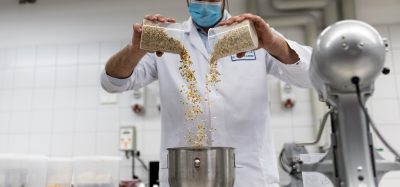High fibre and yoghurt diet associated with reduced risk of lung cancer
Posted: 29 October 2019 | Rachael Harper (New Food Magazine) | No comments yet
A study which analysed 1.44 million people has shown that high fibre and yoghurt consumption are associated with a reduced risk of lung cancer.


According to a new study by Vanderbilt University Medical Center a diet high in fibre and yoghurt is associated with a reduced risk for lung cancer.
The study analysed over 1.44 million individuals from the United States, Europe, and Asia between November 2017 and February 2019.
The results showed that participants with the highest yoghurt consumption and the highest quantity of fibre intake showed more than 30 percent reduced risk of lung cancer compared to those that didn’t consume yoghurt and had the lowest level of fibre intake.
“Our study provides strong evidence supporting the US 2015-2020 Dietary Guideline recommending a high fibre and yoghurt diet,” said senior author Xiao-Ou Shu, MD, PhD, MPH, Ingram Professor of Cancer Research, associate director for Global Health and co-leader of the Cancer Epidemiology Research Program at Vanderbilt-Ingram Cancer Center, as reported in ScienceDaily.
“This inverse association was robust, consistently seen across current, past and never smokers, as well as men, women and individuals with different backgrounds,” she added.
Our findings suggest a potential protective role of prebiotics and probiotics against lung carcinogenesis…”
Dietary fibre and yoghurt consumption were associated with reduced risk of lung cancer after adjusting for known risk factors and among ‘never smokers’, the study concludes. “(These) findings suggest a potential protective role of prebiotics and probiotics against lung carcinogenesis,” it read.








